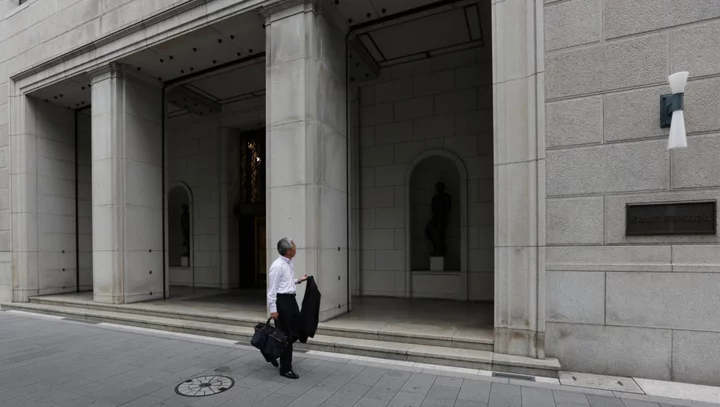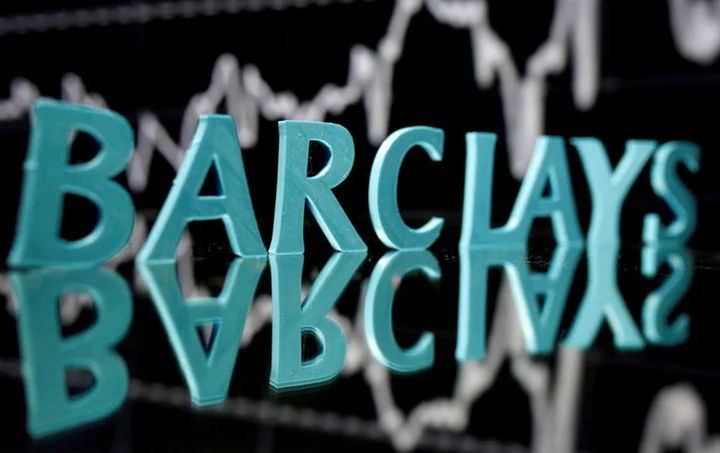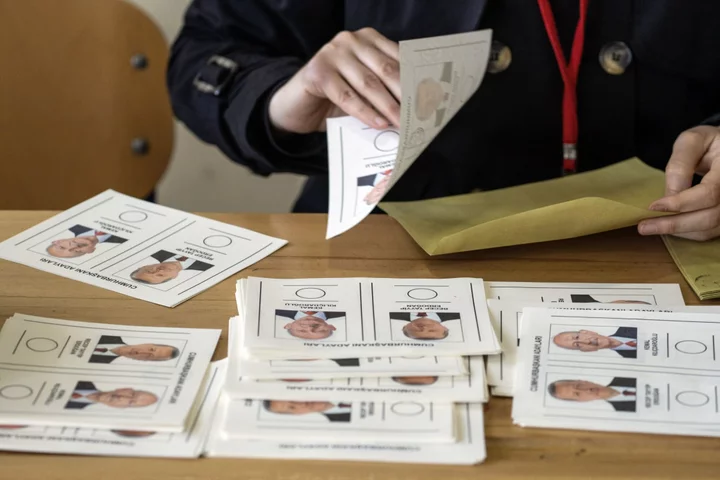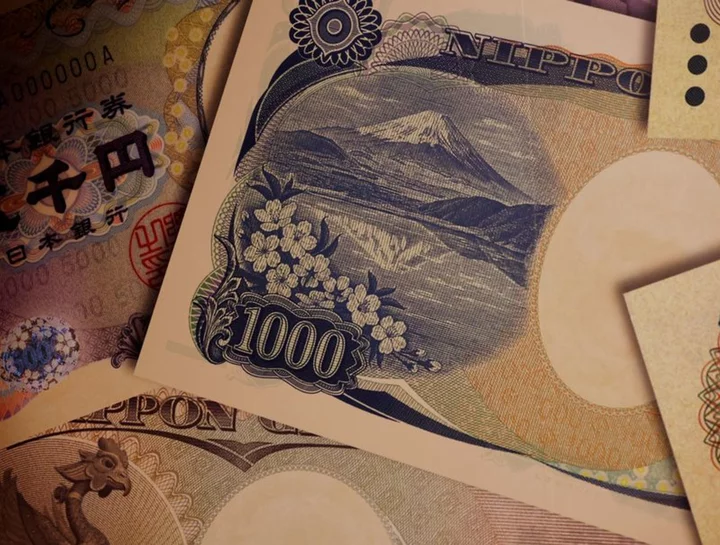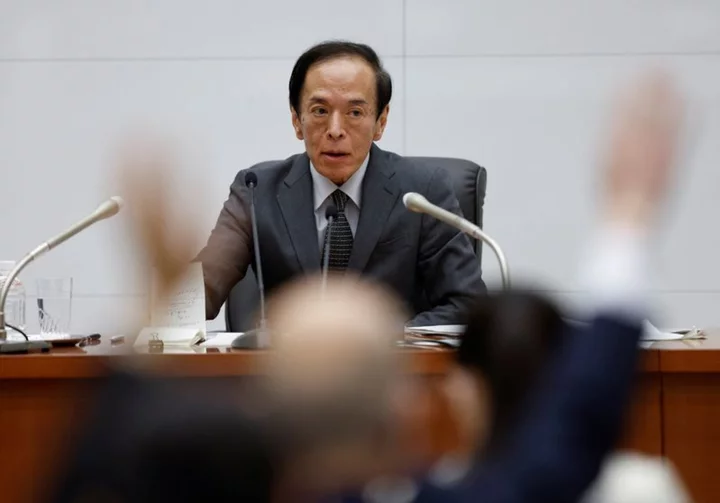Japanese insurance giants are shifting more of their $2.6 trillion in investment money to private credit, giving a further boost to the growing asset class.
Dai-ichi Life Insurance Co. and Nippon Life Insurance Co. are among companies that are seeking more investments in private credit, attracted to their floating interest rates as global borrowing costs jump. Others are weighing making allocations for the first time as Japanese insurers wrestle with dramatically surging hedging costs for their foreign investments.
With the Bank of Japan’s monetary policy out of sync with other major central banks around the world, the yen has weakened and made the cost of hedging foreign bond investments prohibitively expensive. That’s pushing Japanese insurers to grab premiums offered by illiquid assets such as private credit.
“We are paying particular attention to private assets now as they offer higher returns,” Takenori Sugimatsu, executive quantitative analyst at Dai-ichi Life, said in an interview.
The private credit market, estimated at $1.5 trillion by Preqin Ltd., provides non-bank loans to borrowers, often risky companies owned by private equity firms. The asset class — described as in a “golden era” in the current environment of inflation and rising interest rates — has just set a fresh record for the largest loan in its history.
Such loans are attracting investors because they tend to be structured as floating-rate debts which pay a spread over a benchmark such as the Secured Overnight Financing Rate. With SOFR currently above 5%, new private loans are now offering yields of 12% or more.
Beyond private credit, some Japanese insurers are also investing in collateralized loan obligations, which repackage leveraged loans into bonds of varying risk and rewards. CLOs also offer floating-rate yields. The insurers are also looking to keep investing in private equity despite the current lack of deal flow, and other alternative assets such as real estate.
“Japanese institutional investors are increasing their allocations across private markets,” said Eric Chng, head of alternatives solutions for Asia Pacific at State Street. “We are seeing more either considering or have recently set up a private markets investment program.”
Dai-ichi Life has invested in alternative assets aggressively over the past five years, when its holdings of such investments grew by roughly 50%. They now account for about 10% of its portfolio, or more than ¥3 trillion ($20.5 billion), Sugimatsu said.
While the firm is planning to buy alternatives at a slower pace this fiscal year, private debt is a bright spot as it tends to perform well in a higher inflationary environment, he said.
Costly Hedges
Other big Japanese life insurers are also seeing investment opportunities in US private credit, after their holdings of Treasuries were hammered last year by hedging costs that are now around 5.6%, near the highest in more than two decades, Bloomberg-compiled data show.
“We have been investing in private debt for a while, but we can pick up the pace to build up a bit,” said Yu Kosaka, deputy general manager at Nippon Life. “Floating-rate products offset rising hedge costs, so we can keep holding if they offer good spreads.”
Nippon Life, Japan’s largest insurer by assets under management, doesn’t disclose the amount of alternative investment it holds.
One drawback of private credit is that it tends to have low liquidity and default risks can be high when interest rates are rising.
Japan Post Insurance Co. is considering whether to invest in private credit for the first time but is taking a wait-and-see approach as it assesses the risk of defaults and recoveries, according to Kei Takasawa, senior manager at the global credit investment department. That’s even after US money managers visited Japan to tout such assets following the pandemic, he said.
“It’s very difficult to see what’s happening in the private debt area,” Takasawa said. “When we talk with asset managers, everyone says that there’s risk in the market, but says that ‘my portfolio is safe’.”
Meanwhile, Sumitomo Life Insurance Co. has been adding CLOs as well as bank loan funds, said Kouta Kanno, manager of the company’s investment strategy section.
BOJ Effect
Alternative investment took off in Japan about a decade ago when the country’s central bank launched its ultra-easy monetary policy, dragging down domestic bond yields.
While the BOJ has recently eased its yield-curve control policy, there is no sign that it’s going to change overnight rates, said Jason Thomas, head of global research and investment strategy at Carlyle Group Inc. Because Japanese institutions do most of their hedging on a three-month basis, that means such costs will remain elevated, he said.
“This phenomena of extremely high hedging costs will be a feature of the market as long as the overnight interest rates in the US are 4% to 5% and effectively 0% in Japan,” he said.
Global investors are watching whether Japanese institutions will start selling overseas assets to put in domestic bonds and stocks if the BOJ starts raising rates. But the insurers said alternative investments will remain an integral part of their portfolios, even though the size is relatively modest.
Read more on Japanese investment repatriation risks
“Our alternative asset holdings are not so large in proportion to our overall portfolio,” said Masahito Okamura, group manager at Meiji Yasuda Life Insurance Co. “We don’t change our stance just because Japan’s rates rise a bit. They are the assets we will steadily build up.”
--With assistance from Nao Sano.
(Updates with record loan in the fifth paragraph)
Author: Taiga Uranaka, Ayai Tomisawa and Lisa Lee

